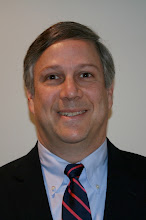 What do Calisto Tanzi, Bernie Ebbers, and Edward Groves have in common? Several things, actually.
What do Calisto Tanzi, Bernie Ebbers, and Edward Groves have in common? Several things, actually.For one, they all ran major companies. Tanzi was CEO of Parmalat, an Italian food company; Ebbers was CEO of WorldCom, an American telecommunications firm; and Groves was CEO of ABC Learning Centres, an Australian day care provider.
For another, each was a hard-driver who started small and made it very big. Tanzi built a global company from one pasteurization plant. Ebbers turned a rural telephone exchange into the third largest telecommunications company in the United States. Groves began with a single childcare center and grew it into the largest day care company in the world.
 Another thing was they all owned professional sports teams. Tanzi had a Serie A football team, Parma F.C.; Ebbers had a minor league hockey team, the Jackson Bandits; and Groves had a basketball team, the Brisbane Bullets.
Another thing was they all owned professional sports teams. Tanzi had a Serie A football team, Parma F.C.; Ebbers had a minor league hockey team, the Jackson Bandits; and Groves had a basketball team, the Brisbane Bullets.Yet another common point is that all of them were involved in massive misstatements of their companies' finances. Tanzi kept enormous amounts of debt off Parmalat's balance sheet, while Ebbers and Groves kept tremendous amounts of costs off their companies' income statements.
 The final thing they have in common is prison. Tanzi has been sentenced to ten years, and Ebbers is serving a 25-year sentence. Groves has yet to face criminal charges, but he may end up in jail yet.
The final thing they have in common is prison. Tanzi has been sentenced to ten years, and Ebbers is serving a 25-year sentence. Groves has yet to face criminal charges, but he may end up in jail yet.What these three malefactors had in common is some combination of these behaviors, which are based on Sydney Finkelstein's "Seven Habits of Spectacularly Unsuccessful People" from his book Why Smart Executives Fail.
- They were domineering. They resisted any outside control, including accounting rules.
- They had no sense of a boundary between their interests and the company's. What was good for them must be good for the company.
- They thought they had all the answers. Since they were always right, they made their own rules.
- They eliminated resistance. They quashed dissent and had no one to warn them about the risks they took.
- They were the public face of their companies. They reveled in public attention and professional rewards, and they saw financial statements mainly as public relations tools.
- They underestimated difficulties. It never occurred to them they eventually would be caught.
- They relied on what worked in the past. They were sure that if a little bit of deception worked before more would work even better now.
It's a truism of credit analysis that character matters, but it doesn't just matter in small and medium-sized businesses. It's crucial in big companies too.
Tanzi, Ebbers, and Groves did not set out to create criminal enterprises. But their own flaws pushed them and their companies across the boundary between aggressive reporting and fraud, with grim consequences for shareholders, bondholders, and lenders. And disastrous consequences for at least two of them.




3 comments:
in my firm, we use the term 'mandoc' to denote a company dominated by typically one manager (usually a founder or significant shareholder).
they dont need to act fraudulently to screw up the business - as you point out, an overly domineering personality/manner can stifle constructive challenge from other senior managers and lead to poor strategies, etc.
high staff turnover is a good indicator that something is wrong.
in larger companies, separation of the chair and ceo is a classic tenet of good corporate governance.
Mandoc is a good term and an even better concept. One-leader firms are prone to big mistakes (with notable exceptions like Steve Jobs at Apple, of course). Another good indicator of the dangerously domineering CEO is the ask-answer ratio. Managers who answer more questions than they ask may be dangerous.
With corruption constantly appearing in corporate America people the Government is always beefing up more oversight and committees to oversee fraud. Thanks to all this Government intervention you can hardly get a loan these days for anything.
Post a Comment